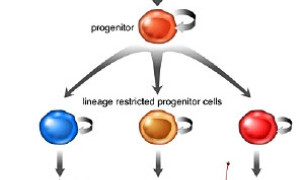 5 Terms
5 TermsHome > Industry/Domain > Biology > Immunology
Immunology
Immunology is the study of the structuree and function of the immune system which is responsible for the protection from invading foreign macromolecules or organisms. It is a broad branch of biomedical science that covers the study of all aspects of the immune system in organisms. It deals with the physiological functioning of the immune system in both healthy states and immunological disorders (autoimmune diseases, hypersensitivities, immune deficiency, transplant rejection); the physical, chemical and physiological characteristics of the components of the immune system in vitro, in situ, and in vivo.
Industry: Biology
Add a new termContributors in Immunology
Immunology
primary lymphoid organs
Biology; Immunology
Organs in which the early stages of T- and B-lymphocyte differentiation take place and antigen-specific receptors are first expressed.
primary response
Biology; Immunology
The immune response resulting from first encounter with antigen; generally small, with a long induction phase or lag period, and generates immunologic memory. In the primary B-cell response, mainly ...
pro-B cell
Biology; Immunology
Earliest stage of B cell differentiation in which a heavy chain D-gene segment rearranges to a J-gene segment.
properdin (factor P)
Biology; Immunology
A positive regulator of the alternative pathway of complement activation; stabilizes C3bBb.
proteasome
Biology; Immunology
Multiprotein cytoplasmic complex, which catabolizes proteins to 8-9 amino acid peptides.
protein kinase C
Biology; Immunology
Enzyme activated by calcium and diacylglycerol during T- and B-lymphocyte activation.
Featured blossaries
rufaro9102
0
Terms
41
Blossaries
4
Followers
Acquisitions made by Apple
 5 Terms
5 Terms

